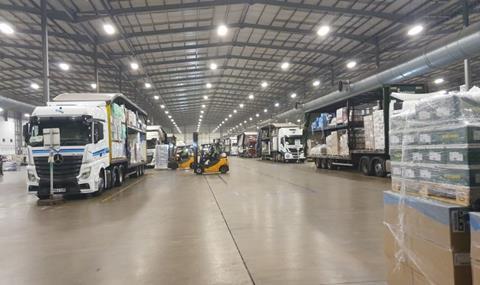
The Association of Pallet Networks (APN) said new figures for the first six months of 2020 show the UK pallet network sector was "far less affected in terms of volume than the early experience of European counterparts indicated".
The first two quarters of 2020 saw pressure on pallet volumes, with a 10% drop in next day deliveries compared to the same period the previous year. This reduction began early in the year, possibly caused by the uncertainty of the Brexit situation, but was then exacerbated by lockdown.
However, as businesses across Europe and the UK started to reopen, the sector rallied with June being the fourth ranked month ever in terms of total pallets. The UK pallet network sector moved a record 2.46m pallets during the month.
“Within hours of the lockdown coming into effect across the UK, our members demonstrated their ability to provide high-quality logistics solutions to sectors as diverse as food, medical supplies and technology," said APN chair Paul Sanders.
"We were united in our desire to provide sector leadership, protecting our employees and doing our utmost to provide essential services to the UK economy.”
The APN has a membership of eight pallet networks in the UK: Palletways, Fortec, Palletline, United Pallet Network, Pallet-Track, Pall-Ex, Palletforce and The Pallet Network. This in turn represents a total of 650+ hauliers, almost 30,000 vehicles and over 13m sq ft of warehouse space.
Overall, Sanders said volumes for the first half of 2020 were 6.5% lower than the same period in 2019, and the pallets shipped through Economy services rose by 1.9%.
He put this resilience down to the maturity of the UK pallet network sector, explaining that as order volumes dropped many customers switched from dedicated full loads to pallet network services, as a more efficient and economic model.
The APN also confimred that home delivery was "a big winner" during lockdown as customers looked to e-commerce options to bring goods to their homes, not least for DIY and landscaping projects.
"28% of all deliveries made in April 2020 were to residential addresses, compared to an average of 13.1% in 2019,” Sanders revealed. “This is a massive increase and B2C deliveries can be very challenging for networks.
“However, the networks have refined their home delivery services in recent years and responded well, offering contactless deliveries to protect customers and staff alike.”
He said it was likely that large movements of turf and aggregates to residential addresses contributed to the slight upward shift in average pallet weights, which stands at 384kg for the first six months of 2020.
“Our network members are cautiously optimistic for the remainder of the year," Sanders concluded, "although, of course, there is great economic uncertainty. However, using a pallet network remains the most cost-effective and efficient way to deliver small quantities of pallets so many businesses who have previously used dedicated services may well respond to potential drops in their order book by using networks instead.
“We have worked very closely with other industry bodies, including the RHA, to ensure government has been briefed on the financial and operational support the sector needs to carry out its essential work. We continue to actively liaise across the sector to ensure a potential second wave can be handled with the same level of efficiency and professionalism.”













